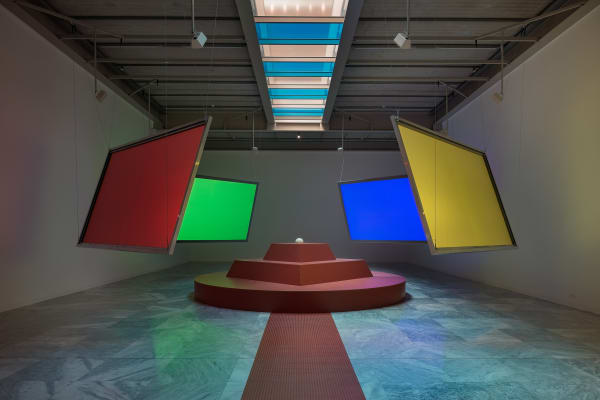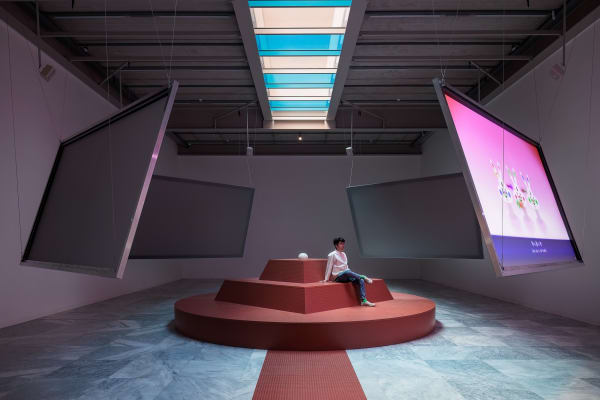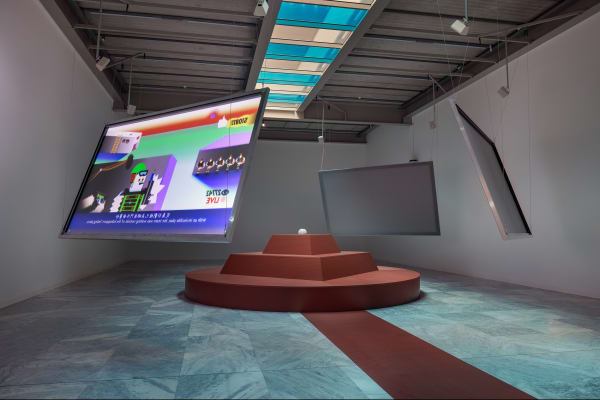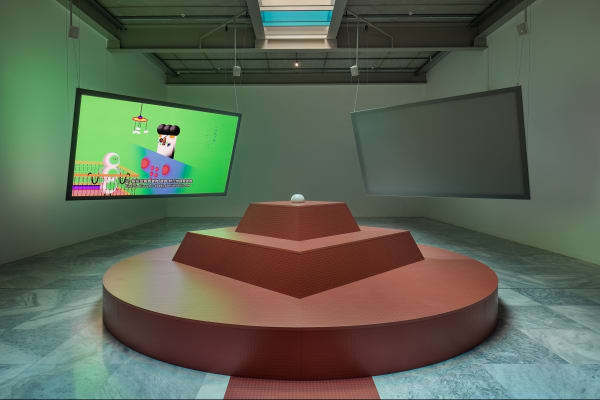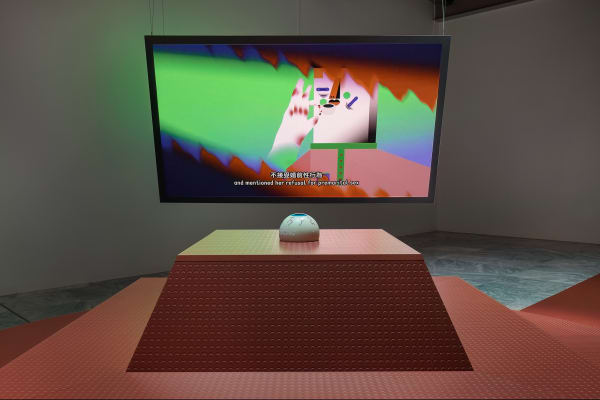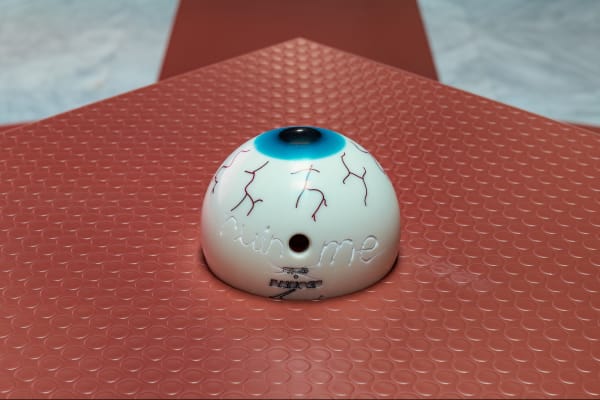Wong Ping: edging: MAK Contemporary, Vienna
With WONG PING. edging, the MAK is presenting the first solo exhibition in Austria of one of the most aspiring and eccentric contemporary artists. In his trenchant short films that intertwine personal and fictional stories Wong Ping (* 1984 in Hong Kong) uses sexual desire and suppressed fantasies as metaphors for larger social issues. In a setting created especially for the new exhibition space MAK Contemporary, the artist is presenting four of his latest animated films.
Wrapped in colorful pop language and cute aesthetics, Wong Ping addresses our deepest desires, suppressed fantasies or obscenities, paired with existential and political themes. Many of his stories reflect the atmosphere of our globalized and digitized society in the 21st century. “Sex is only the language, not the message,” says Wong Ping about his work, which takes a light-hearted, humorous, and accessible approach to reveal uncomfortable and shameful truths about society.
Be it isolation, social pressure, political tensions, clashing ideologies, fear of intimacy, failure or the loss of individual freedoms, Wong Ping provides razor-sharp criticism and breaks down the contradictions and complexities of contemporary society in an unusual way. With disarming honesty, always on the edge between shock and humor, he encourages visitors to rethink ingrained standards of decency.
Wong Ping is an artistic autodidact. In 2005, he graduated in Multimedia Design from Curtin University in Perth (Australia) and subsequently worked in post-production at a television station in Hong Kong and at Cartoon Network.
His experimenting with software, his storytelling talent, and his fondness of the bizarre, led Wong to start processing his daily experiences and observations in Hong Kong in short animated videos, which he uploaded to Vimeo. In 2014, he founded what he called the “Wong Ping Animation Lab.”
Besides its sexual connotation, the exhibition title edging—the controlled delay of climax—can be read as a metaphor for the precarious situation in which Hong Kong finds itself politically and socially. As a former British colony, it was returned to China in 1997 under the slogan “one country, two systems,” promising the region a high degree of autonomy and democracy. Concerns about the erosion of these freedoms and fears about the loss of the way of life and civil rights due to Beijing’s increasing influence have triggered widespread protests in Hong Kong in recent years.
Wong’s distinctive visual language is particularly effective when it comes to concealing social taboos loaded with observations about suppressed sexuality, social relationships, political constraints, and cultural etiquette. His works are filled with dark humor and provocative images and challenge viewers to question their own norms and conventions. His characteristic flat, round animation style with color gradients is reminiscent of the 8-bit video game aesthetics and the early internet as well as MTV commercials from the 1980s and 1990s.
At MAK Contemporary, visitors can expect a spatial installation especially designed by the artist as usable setting for his scenography of animation films. The dimmed room is staged with a ceiling installation of colored light. A long studded floor leads to a round seating platform, the central anchor point of the installation, from which the four video works—Wong Ping’s Fables 1 (2018), Wong Ping’s Fables 2 (2019), Sorry for the Late Reply (2021), and Who’s the Daddy (2017)—are consecutively screened as large-format projections (duration between 9 and 15 minutes).
The key visual designed by the artist for the exhibition (for posters in the city and online) shows a figure with a mask, balancing on a narrow beam with studs, trying to bend a metal rod—an image, that like the colors and materials chosen by the artist is meant to match the potentially uneasy feeling evoked by the term “edging.”
Image credit:
MAK Exhibition View, 2023, WONG PING. edging
Courtesy of the artist, Tanya Bonakdar Gallery, New York / Los Angeles and Kiang Malingue, Hong Kong / Shanghai
© kunst-dokumentation.com/MAK
